Publications
Selected books, online reference work, articles in refereed journals and refereed chapters in edited volumes.
Books
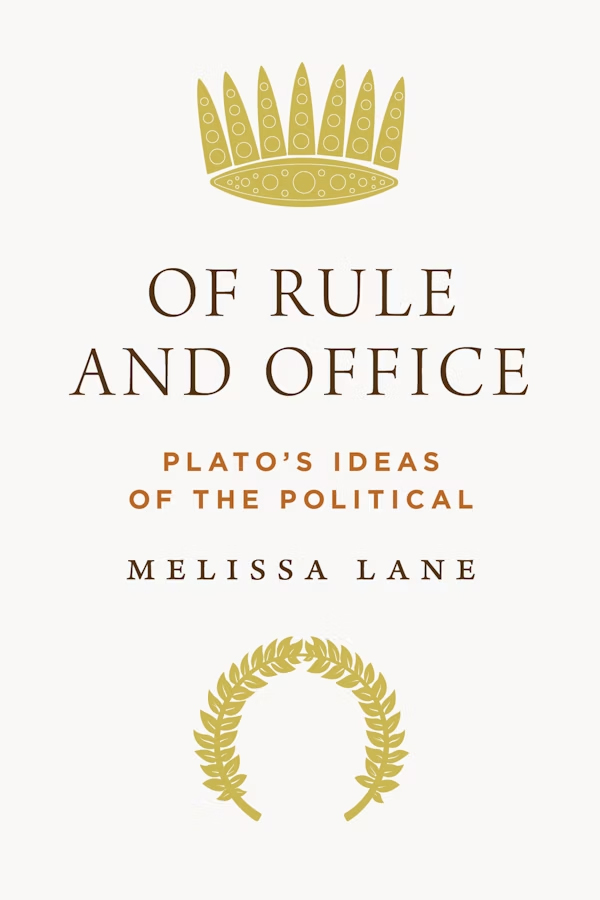
Of Rule and Office: Plato’s Ideas of the Political
Princeton University Press
Published on 20 June 2023. Awarded the 2024 Book Prize of the Journal of the History of Philosophy. Paperback edition incorporating revisions published October 2025.
Hardbacks and ebooks can be ordered from Princeton University Press or via a list of local bookstores here.
An index locorum for the volume is available here (as updated for the revised paperback edition of 2025): Lane-Of-Rule-and-Office-PUP-2023-index-locorum-updated-pbk-edn-2025.
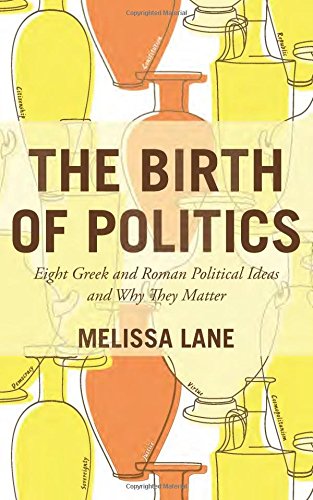
The Birth of Politics: Eight Greek and Roman Political Ideas and Why They Matter
2015, Princeton University Press
This is the United States edition of the text published elsewhere in 2014 as Greek and Roman Political Ideas.
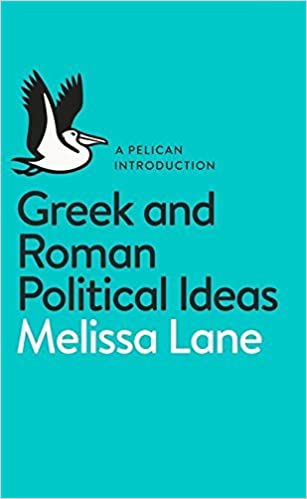
Greek and Roman Political Ideas
2014, Penguin Pelican imprint (UK, Canada, Australia and New Zealand).
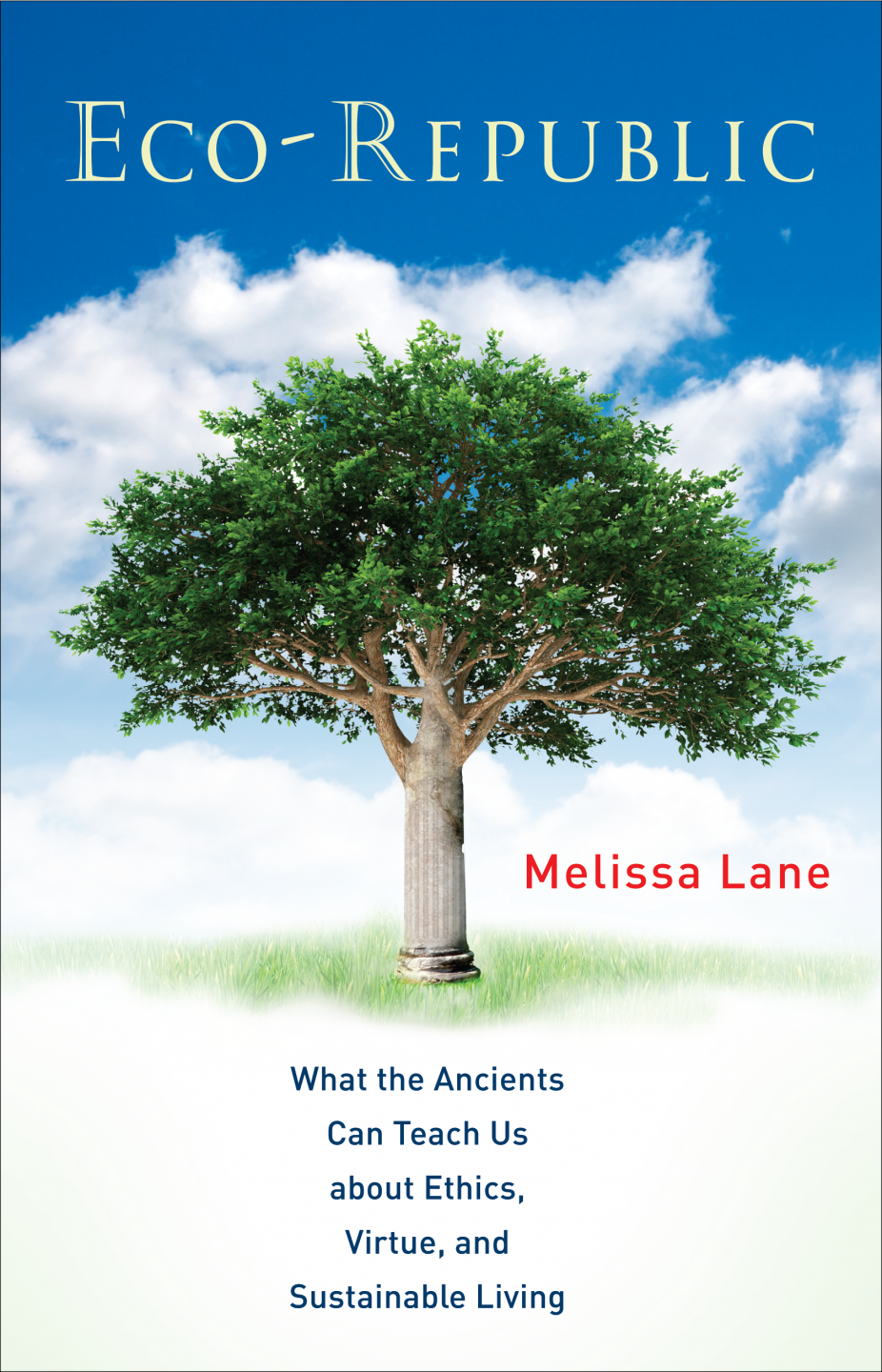
Eco-Republic
Eco-Republic: What the Ancients Can Teach Us about Ethics, Virtue, and Sustainable Living
2012, Princeton University Press in the USA
Eco-Republic: Ancient Ethics for a Green Age
2011, Peter Lang in the UK
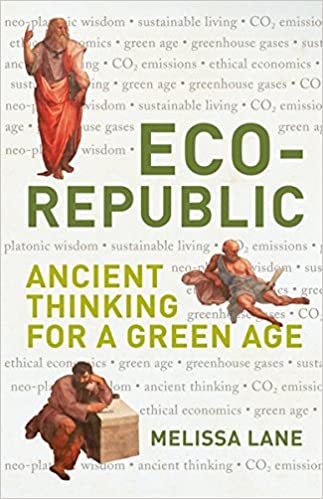
Eco-Republic: Ancient Ethics for a Green Age
2011, Peter Lang in the UK
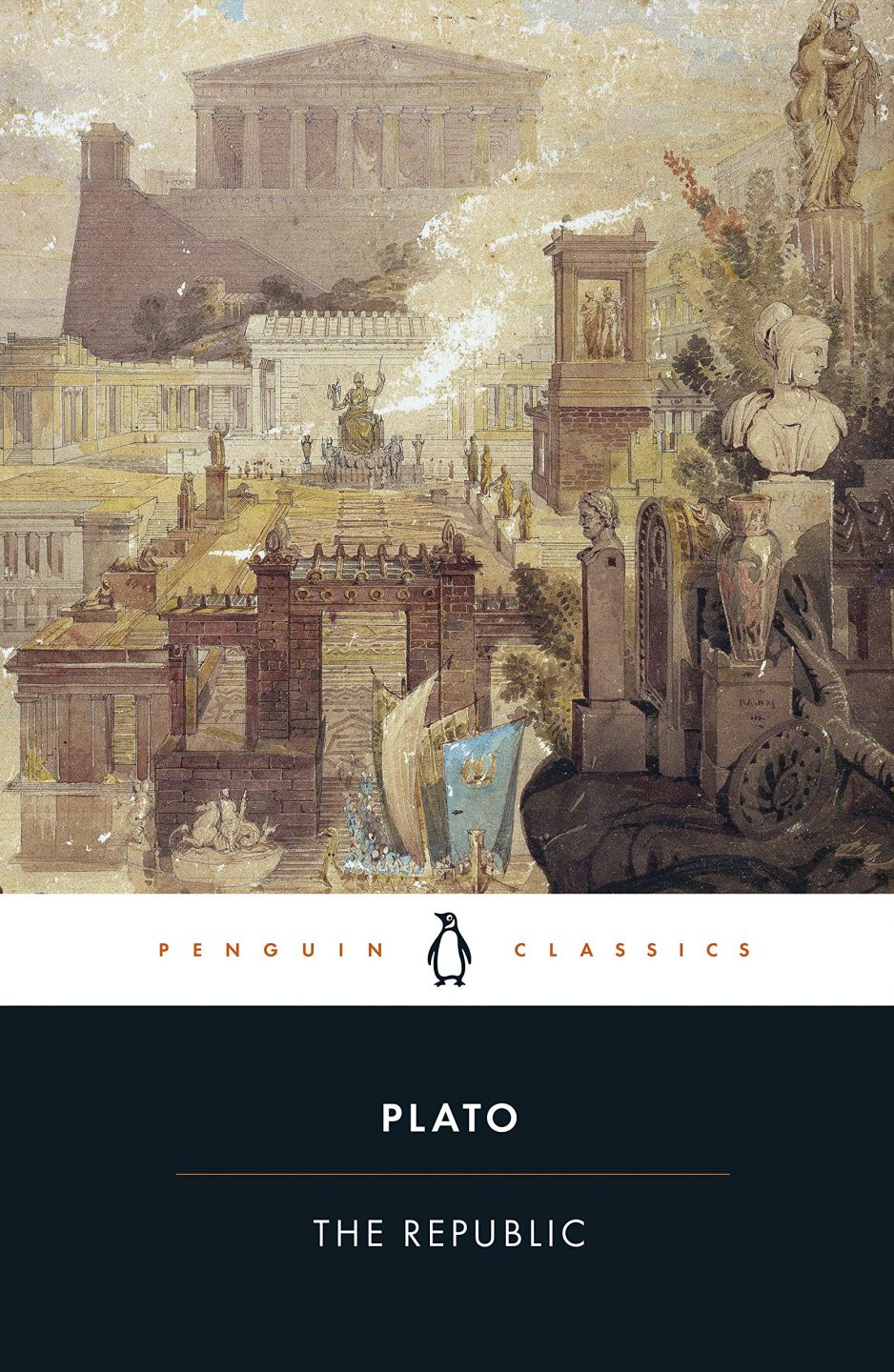
‘Introduction’ to Plato, Republic [as Melissa Lane]
2007 edition with translation by D. Lee, Penguin Classics
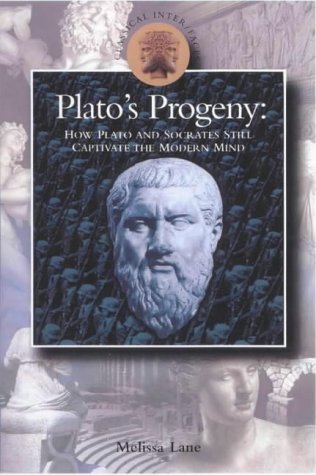
Plato’s Progeny: How Plato and Socrates still captivate the modern mind [as Melissa Lane]
2001, Duckworth
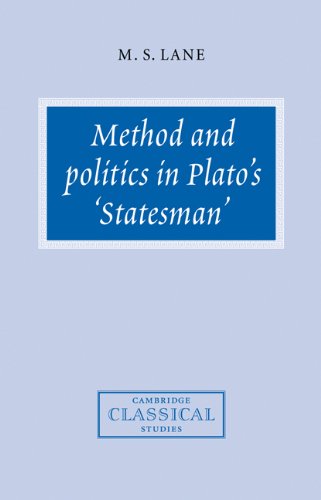
Method and Politics in Plato’s Statesman [as M.S. Lane], 1998, Cambridge University Press
Co-Edited Books
- Plato’s Statesman: A Philosophical Discussion, co-edited by Panos Dimas, Melissa Lane, and Susan Sauvé Meyer, Oxford University Press, 2021, including Melissa Lane, ‘An Overview of This Volume’ (pp.19-24), and Melissa Lane, ‘Statecraft as a ruling, weaving, and caring dunamis: [Plato, Statesman] 303d4-305e7’ (pp.195-216).
- Politeia in Greek and Roman Philosophy, 2013, Cambridge University Press, co-edited by Verity Harte and Melissa Lane, with an Introduction by the co-editors (pp.1-12), and Melissa Lane, ‘Platonizing the Spartan politeia in Plutarch’s Lycurgus’ (pp.57-77).
- A Poet’s Reich: Politics and Culture in the George Circle: co-edited with Martin A. Ruehl, and published in 2011 by Camden House.
Online Reference Work
- ‘Ancient Political Philosophy’, in The Stanford Encyclopedia of Philosophy, substantial revision published on March 22, 2023 (first published 6 September 2010), Edward N. Zalta (ed.)
Articles in Refereed Journals and Book Chapters
‘Response to Comments on Of Rule and Office: Plato’s Ideas of the Political’, The Review of Politics [article accepted by editor and scheduled for 2027 annual volume].
‘Response to Comments on Of Rule and Office: Plato’s Ideas of the Political’, Polis, The Journal for Ancient Greek and Roman Political Thought 41 (2024) 1-16.
‘Response to Comments: Of Rule and Office: Plato’s Ideas of the Political’, Oxford New Books 1 (2024) 15-20.
‘Response to Comments: Of Rule and Office: Plato’s Ideas of the Political’, History of European Ideas (2024) online first, 8 March 2024: 1-8.
‘Ancient Political Philosophy’, Stanford Encyclopedia of Philosophy (peer reviewed reference encyclopedia): substantive content change in 2023 edition (orig. 2010), c. 18,000 words: Lane, Melissa, ‘Ancient Political Philosophy’, The Stanford Encyclopedia of Philosophy (Summer 2023 Edition), Edward N. Zalta & Uri Nodelman (eds.), URL = <https://plato.stanford.edu/archives/sum2023/entries/ancient-political/>.
- ‘Plato’s neglected critiques of democratic cities in Republic 8 and 9: inside and outside the narrative of representative fathers and sons,’ in Rereading Plato’s Republic, eds. M.M. McCabe and Simon Trepanier, Edinburgh University Press, 2025, 212-236.
- Melissa Lane, ‘An Overview of This Volume’ (pp.19-24), and Melissa Lane, ‘Statecraft as a ruling, weaving, and caring dunamis: [Plato, Statesman] 303d4-305e7’ (pp.195-216), both in Plato’s Statesman: A Philosophical Discussion, co-edited by Panos Dimas, Melissa Lane, and Susan Sauvé Meyer, Oxford University Press, 2021.
- ‘Politics as architectonic expertise? Against taking the so-called ‘architect’ (ἀρχιτέκτων) in Plato’s Statesman to prefigure this Aristotelian view’, Polis 37:3 (2020) 449-467.
- ‘Self-knowledge in Plato? Recognizing the limits and aspirations of a self as knower’, in Self-Knowledge in Ancient Philosophy ed. Fiona Leigh, Oxford University Press, 2020, 51-70.
- ‘Technē and archē in Republic I,’ Oxford Studies in Ancient Philosophy 57 (2019) 1-24.
- ‘The Idea of Accountable Office in Ancient Greece and Beyond,’ Philosophy (2019) 1-22.
- ‘Xenophon (and Thucydides) on Sparta (and Athens): debating willing obedience not only to laws, but also to magistrates’ in Philosophie für die Polis. Akten des 5. internationalen Kongresses der Gesellschaft für Antike Philosophie in Zürich (6.–9. September 2016), ed. Christoph Riedweg, Verlag de Gruyter, Berlin, Boston, 2019.
- ‘Ancient Ideas of Politics: Mediating between Ecology and Theology’ in Ecology and Theology in the Ancient World: Cross-disciplinary Perspectives, eds. A. Hunt and H. Marlow, Bloomsbury, 2019, 13-23.
- ‘Plato on the value of knowledge in ruling,’ Aristotelian Society Supplementary Volume XCII (2018) 49-67 (doi: 10.1093/arisup/aky010).
- ‘Placing Plato in the History of Liberty,’ History of European Ideas special issue, ed. V. Arena, History of European Ideas 44:6 (2018) 702-718.
- ‘How to turn history into scenario: Plato’s Republic Book 8 on the role of political office in constitutional change,’ in How To Do Things With History, eds. D. Allen, P. Christesen and P. Millett, Oxford University Press, 2018, 81-108.
- ‘Introduction,’ in Aristotle’s Politics: Writings from the Complete Works, ed. J. Barnes with introduction by M. Lane, Princeton University Press, 2016, vii-xxii.
- ‘Popular Sovereignty as Control of Officeholders: Aristotle on Greek Democracy,’ in Popular Sovereignty in Historical Perspective, eds. R. Bourke and Q. Skinner, Cambridge University Press, 2016, 52-72.
- ‘Antianarchia: Interpreting Political Thought in Plato’, in Plato Journal: the journal of the International Plato Society 16 (2016) 59–74.
- Verity Harte and Melissa Lane, ‘Introduction’, in Politeia in Greek and Roman Philosophy, eds. Verity Harte and Melissa Lane, Cambridge University Press, 2013, 1-12.
- ‘Platonizing the Spartan Politeia in Plutarch’s Lycurgus’, in Politeia in Greek and Roman Philosophy, eds. Verity Harte and Melissa Lane, Cambridge University Press, 2013, 57-77.
- ‘Political Expertise and Political Office in Plato’s Statesman: the statesman’s rule (archein) and the subordinate magistracies (archai),’ in Aleš Havlíček, Jakub Jirsa and Karel Thein (eds) Plato’s Statesman – Proceedings of the eighth Symposium Platonicum Pragense (Prague: OIKOYMENH), 2013, 49-77.
- ‘Claims to rule: the case of the multitude’, in The Cambridge Companion to Aristotle’s Politics, eds. M. Deslauriers and P. Destrée (Cambridge: Cambridge University Press, 2013), pp. 247-74.
- ‘Platon et le Développement Durable’, in Revue Francaise d’Histoire des Idées Politiques 37 (2013) 111-31, an adaptation of Eco-Republic: Ancient Ethics for a Green Age, translated into French by Mattieu Bouchet and Dimitri El Murr.
- ‘Founding as legislating: the figure of the lawgiver in Plato’s Republic’, in Dialogues on Plato’s Politeia (Republic):
- Selected Papers from the Ninth Symposium Platonicum, eds. Noboru Notomi and Luc Brisson (Sankt Augustin: Academia Verlag, 2013), pp.104-14.
- ‘Lifeless Writings or Living Script?: The Life of Law in Plato, Middle Platonism, and Jewish Platonizers’, Cardozo Law Review 34:3 (2013): 937-64 [law review editorial procedures].
- ‘Politics and (the figure of) the politicus’, in The Continuum Companion to Plato, ed. G. Press, Continuum, 2012 (1000 words).
- ‘The Origins of the Statesman – Demagogue Distinction in and after Ancient Athens,’ Journal of the History of Ideas 73: 2 (2012), 179-200.
- ‘Persuasion et force dans la politique platonicienne’, translated into French by Dimitri El Murr, in Aglaïa: autour de Platon. Mélanges offerts à Monique Dixsaut, eds. A. Brancacci, D. El Murr and D. P. Taormina, Vrin, 2011, 133-66.
Click here for English version ‘Persuasion and Force in Platonic Politics’ (but only to be cited in the published French version) - ‘Reconsidering Socratic Irony’, in The Cambridge Companion to Socrates, ed. D. Morrison, Cambridge, 2011, 237-59.
- ‘Plato’ (5000 words) and ‘Philosopher Kings’ (1000 words) in Encyclopedia of Political Theory, ed. M. Bevir, Sage, 2010.
- ‘Comparing Greek and Chinese Political Thought: The Case of Plato’s Republic’, Journal of Chinese Philosophy 36:4 (2009)585-601.
- ‘Virtue and the love of knowledge in Plato’s Symposium and Republic’, in Maieusis: Essays in Ancient Philosophy in Honour of Myles Burnyeat, ed. D. Scott, Oxford, 2007, 44-67.
- ‘The evolution of eironeia in classical Greek texts: why Socratic eironeia is not Socratic irony’, Oxford Studies in Ancient Philosophy 31 (2006) 49-83.
- ‘“Emplois pour philosophes”: l’art politique et l’Etranger dans le Politique à la lumière de Socrate et du philosophe dans le Théétète’, translated into French by Fulcran Teisserenc, Les Études philosophiques, 2005 (no.3: September) 325-45.
Click here for English version ‘“Jobs for Philosophers”: statecraft and the Stranger in the Statesman in light of Socrates and the philosopher in the Theaetetus’ (but only to be cited in French) - ‘Pyrrhonism and Protagoreanism: Catching Sextus Out?’, co-authored with Verity Harte, Philosophiegeschichte und Logische Analyse/Logical Analysis and the History of Philosophy (1999) 157-72.
- ‘Argument and Agreement in Plato’s Crito’, History of Political Thought 19:3 (1998) 313-330.
- ‘Plato’s Political Philosophy’, in The Blackwell Companion to Ancient Philosophy, eds. M.L. Gill and P. Pellegrin, Blackwell, 2006, 170-191.
- ‘Introduction’ to Plato and Socrates section, The Cambridge History of Greek and Roman Political Thought, eds. M. Schofield and C. Rowe, Cambridge University Press, 2000, 155-63; also Associate Editor of this volume.
- ‘A New Angle on Utopia: the Political Theory of the Politicus’, in Reading the Statesman: Proceedings of the Third International Symposium Platonicum, ed. C. Rowe, Academia Verlag, 1995, 276-291.
‘Plato on Rule and Office: the value and limits of proceduralism,’ in What is Good Government? The Philosophy of Office, Institutions and Administration, ed. N. Kirby, Oxford University Press, 2025 [in press].
- ‘The All-Affected Principle and Climate Change’, in Archon Fung and Sean W.D. Gray (eds), Empowering Affected Interests: Democratic Inclusion in a Globalized World’, 211-228 (Cambridge: Cambridge University Press, 2024)
- Sverker Sörlin and Melissa Lane, ‘Historicizing climate change – engaging new approaches to climate and history,’ Climatic Change 151 (2018): 1-13. https://doi.org/10.1007/s10584-018-2285-0.
- [This is the refereed introduction to a Special Issue on ‘Historicizing Climate Change’ edited by Melissa Lane, John R. McNeill, Robert H. Socolow, Sverker Sörlin]
- Michael Lamb and Melissa Lane, ‘Aristotle on the ethics of communicating climate change’, in Clare Heyward and Dominic Roser (eds) Climate Justice in a Non-Ideal World, Oxford University Press, 2016, 229-254.
- ‘Political Theory on Climate Change’, Annual Review of Political Science 19 (2016) 107-123.
- Robert O. Keohane, Melissa Lane, and Michael Oppenheimer, ‘The ethics of scientific communication under uncertainty’, Politics, Philosophy and Economics, published online 27 June 2014. DOI: 10.1177/1470594X14538570
- ‘When the experts are uncertain: scientific knowledge and the ethics of democratic judgment’, Episteme 11:1 (2014) 97-118.
- Guest editor of special part-issue on Compensation, Jahrbuch für Recht und Ethik/Annual Review of Law and Ethics 17 (2009), and author of ‘Introduction: The Political and Interpersonal Roles of Compensation: Bringing Ethics into Focus in Public and Private Law’, 227-36, to the following six papers:
- ‘Accidents at Work, Security and Compensation in Industrialising Europe. The cases of Britain, Germany, and Italy, 1870-1925’, 237-58 (J. Moses, History, Oxford)
- ‘Climate Change and Corrective Justice’, 259-76 (C. McKinnon, Politics, Reading)
- ‘Compensation and the Exercise of Rights’, 277-88 (C. Grant, Law, Warwick)
- ‘Damages and Human Rights: A Changing Relationship Between Citizen and State?’, 289-308 (J. McLean, Law, Dundee – now Auckland)
- ‘Torts, Markets and Equality’, 309-26 (P. Bou-Habib, Government, Essex)
- ‘The Consequences of Public Authority Liability’, 327-51 (D. Squires, Matrix Chambers, London)
- ‘A Philosophical View on States and Immigration’, in Globalizing Migration Regimes: New Challenges to Transnational Cooperation, eds. K. Tamas and J. Palme, Ashgate, 2006, 131-43.
- ‘The Moral Dimension of Corporate Accountability’, in Global Responsibilities: Enforcing Rights by Defining Obligations, ed. A Kuper, Routledge, 2005, 229-250.
- ‘Autonomy as a Central Human Right and Its Implications for the Moral Responsibilities of Corporations’, in Human Rights and the Moral Responsibilities of Public and Private Sector Organisations, eds. T. Campbell and S. Miller, Kluwer, 2004, 145-63.
- Melissa Lane, ‘Roman Censorship, Spartan Parallels and Modern Uses in Rousseau’s Social Contract’, in Geoff Kemp (ed.) Censorship Moments: Reading Texts in the History of Censorship and Freedom of Expression (Bloomsbury Academic 2015), pp.95-102: Chapter DOI 10.5040/9781472593078.ch-013
- ‘The genesis and reception of The Road to Serfdom’ in Hayek: A Collaborative Biography, vol.1, ed. R. Leeson, Palgrave Macmillan, 2013, 43-60.
- ‘Doing Our Own Thinking for Ourselves: On Quentin Skinner’s Genealogical Turn,’ Journal of the History of Ideas 73:1 (2012): 71-82.
- ‘The Platonic politics of the George-Kreis: a reconsideration’, and (with Martin A. Ruehl), ‘Introduction’, in A Poet’s Reich: Politics and Culture in the George Circle, eds. M. Lane and M. A. Ruehl, Camden House, an imprint of Boydell & Brewer, 2011, 133-163.
- ‘Constraint, Freedom, and Exemplar: History and Theory without Teleology’, in Political Philosophy versus History? Contextualism and Real Politics in Contemporary Political Thought, eds. J. Floyd and M. Stears, Cambridge, 2011, 128-150.
- ‘Thoreau and Rousseau: Nature as Utopia’, in A Political Companion to Henry David Thoreau, ed. J. Turner, University Press of Kentucky, 2009, 341-71.
- ‘Honesty as the best policy? Nietzsche on Redlichkeit and the contrast between Stoic and Epicurean strategies of the self’, in Histories of Postmodernism: The Precursors, The Heyday, The Legacy, eds. M. Bevir, J. Hargis, and S. Rushing, Routledge, 2007, 25-51.
- ‘Why History of Ideas At All?’, History of European Ideas 28:1-2 (2002) 33-41.
- ‘States of Nature, Epistemic and Political’, Proceedings of the Aristotelian Society 99 (1999) 211-224.
- ‘Gadfly in God’s Own Country: Socrates in Twentieth-Century America’, in Socrates in the Nineteenth and Twentieth Centuries, ed. M.B Trapp (Ashgate, 2007), 203-224.
- ‘Reactions to Positivism’, in The Cambridge History of Twentieth-Century Political Thought, eds. R. Bellamy and T. Ball, Cambridge University Press, 2003, 321-342